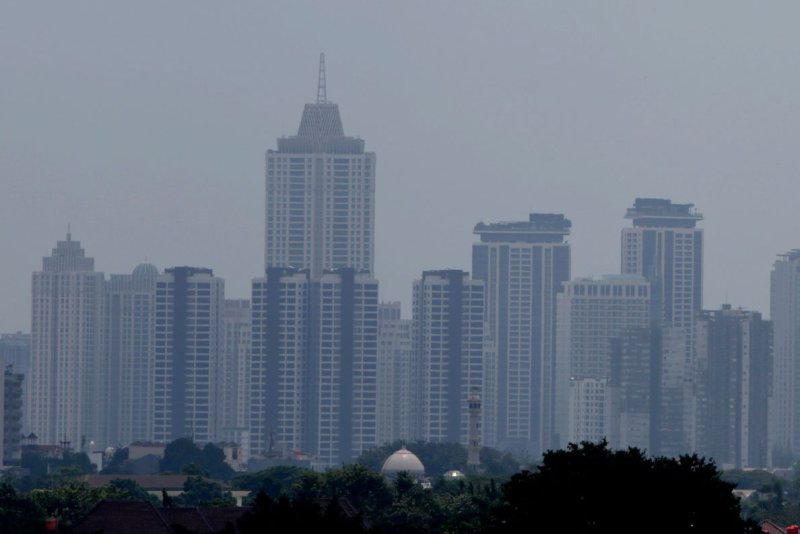Jakarta, the present capital of Indonesia, suffers from several problems -- including overcrowding and the city is sinking due to overextraction of groundwater. File Photo by Adi Weda/EPA-EFE
Jan. 18 (UPI) -- Indonesian lawmakers passed a bill on Tuesday to formally relocate the capital of the country from Jakarta to a location in Kalimantan state -- and name the new government center Nusantara.
The move on Tuesday follows a promise by President Joko Widodo three years ago to move the capital due to a number of factors in Jakarta, including a crowded population and a sinking elevation.
Relocating the capital is intended to relieve stresses on Jakarta, a city of 10 million people, and the island of Java. The new capital is located in a jungled part east on Borneo Island.
Nusantara is an Indonesian word meaning "archipelago."
"The relocation of the capital city to Kalimantan is based on several considerations, regional advantages and welfare," Suharso Monoarfa, minister of development, said according to CNN.
"With the vision of the birth of a new economic center of gravity in the middle of the archipelago."
A new legal framework passed by lawmakers supports Widodo's ambitious $32 billion megaproject and stipulates how the development of the capital will be funded and governed.
The project envisions a low-carbon "super hub" that will support sustainable growth in the pharmaceutical, health and technology sectors.
Though construction will begin this year, it will likely take decades to build and stretch past Widodo's final five-year term.
Some critics say the law was passed without enough consultation or environmental consideration.
The process of relocating the capital from Jakarta has been delayed by the COVID-19 pandemic.















